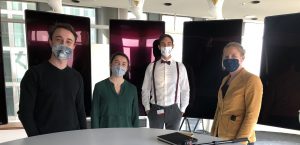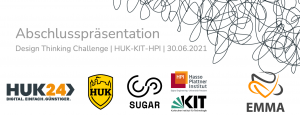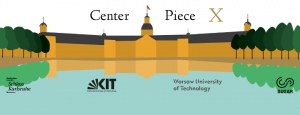Service Design Thinking at KIT, aka the SDT module, is a 9-months project-based learning program. It is about international top students working in small teams to develop disruptive innovations in collaboration with selected industry partners. Thereby, we have a focus on new digital services or digital business models.
Philosophy
Our Focus
Learn Design Thinking
Have fun
Solve Real-World Problems
The SDT Module
Your Benefits
- Credits: You receive 9 + 4,5 ECTS
- Methodological Knowledge: You learn the Design Thinking approach which is in strong demand in the industry
- Practical Experience: Gain practical experience by solving a real business innovation problem
- Working with Corporate Executives: Learn to communicate and work with high-level corporate executives
- Network: Build a network of international contacts to attractive companies, high-level corporate representatives and students from the SUGAR network
- Soft Skills: Learn to work in international teams, working remotely and collect valuable experience in intercultural communication
- International Travel: Travel to international hotspots in Europe for the presentations and visit your partner university
- Spirit: Many of our participating students mention the spirit of the entire program as a memorable benefit
- Event Participation: Participate and play an active role in events that draw hundreds of participants from academia and industry
WANT TO KNOW MORE ABOUT How We Work?
Check out the
what we work on
Reference Challenges
Course Structure
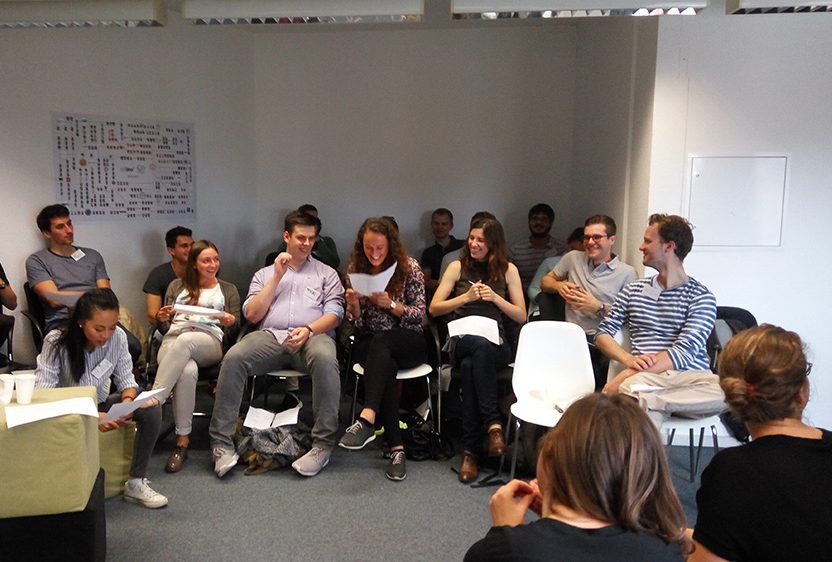
Meeting types
LGM and SGM
We conduct weekly coaching sessions of approx. 60 min length with each student team, so-called Small Group Meetings (SGM). The appointment is selected together with the team.
There is also a weekly course in which all teams participate together, the so-called Large Group Meeting (LGM). LGMs last about 90 minutes, have some lecture character with very strong interactive part or are forum to discuss intermediate results together. The LGM usually take place on Mondays from 18:00 to 19:30. (Note: The attendance dates take place during the entire 9 months, i.e. also during the semester holidays.)
Teamwork
Group Setup
Within the framework of the SDT module, international student teams work on real innovation challenges of renowned partner companies. Each team is composed of 3-4 KIT students and 3-4 students from a foreign partner university (e.g. St. Gallen, USTC, Linkoping University, Aalto Helsinki, Trinity College, …). The teams are working on the challenge of their respective partner company for over 9 months (e.g. September 2018 – June 2019). The teams receive a contact person on the company side, with which they regularly exchange information on the project stand. To cover travel expenses and some purchases, each team gets its own budget. The teams are encouraged to organize themselves.
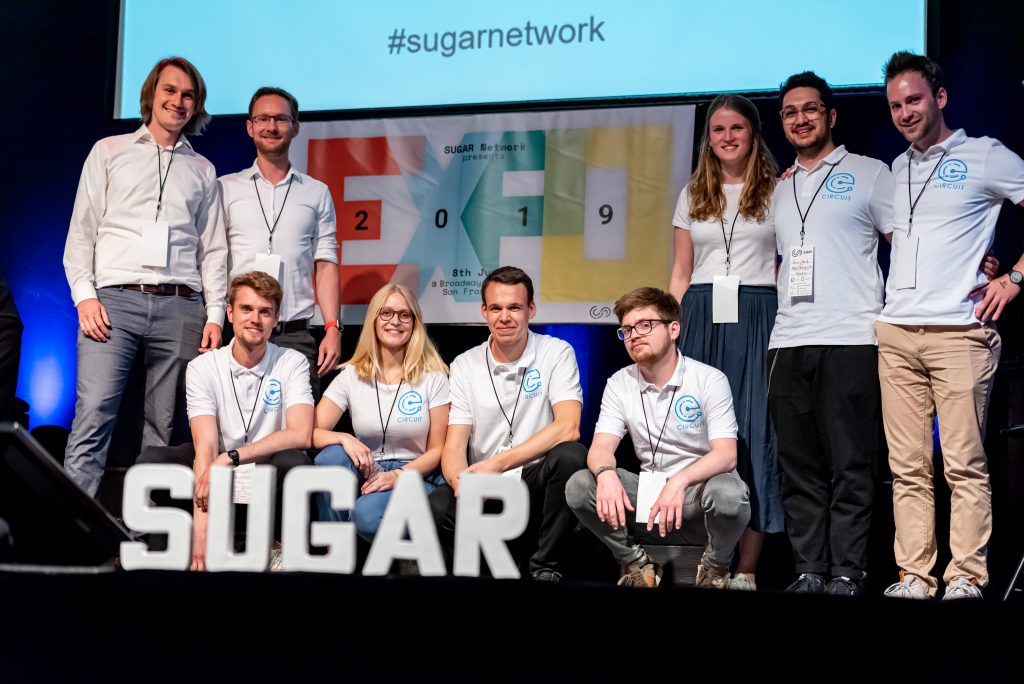
team
The Teaching team
The teaching is done by the so-called teaching team (TT), which comprises Prof. Dr. Gerhard Satzger, Prof. Dr. Orestis Terzidis and Dr. Niels Feldmann.
The teaching team is supplemented by so-called teaching assistants. These are students of the previous years who will assist you with SGMs, preparation for presentations etc.
team
Teaching assistants
Throughout the program there will be weekly lecture-like teaching units, sporadic one-day workshops for the student teams in collaboration with the teaching team, as well as weekly coaching sessions of each team by a coach, called the Teaching Assistant (TA). Finally, as a teaching team, we occasionally engage in team coaching directly.
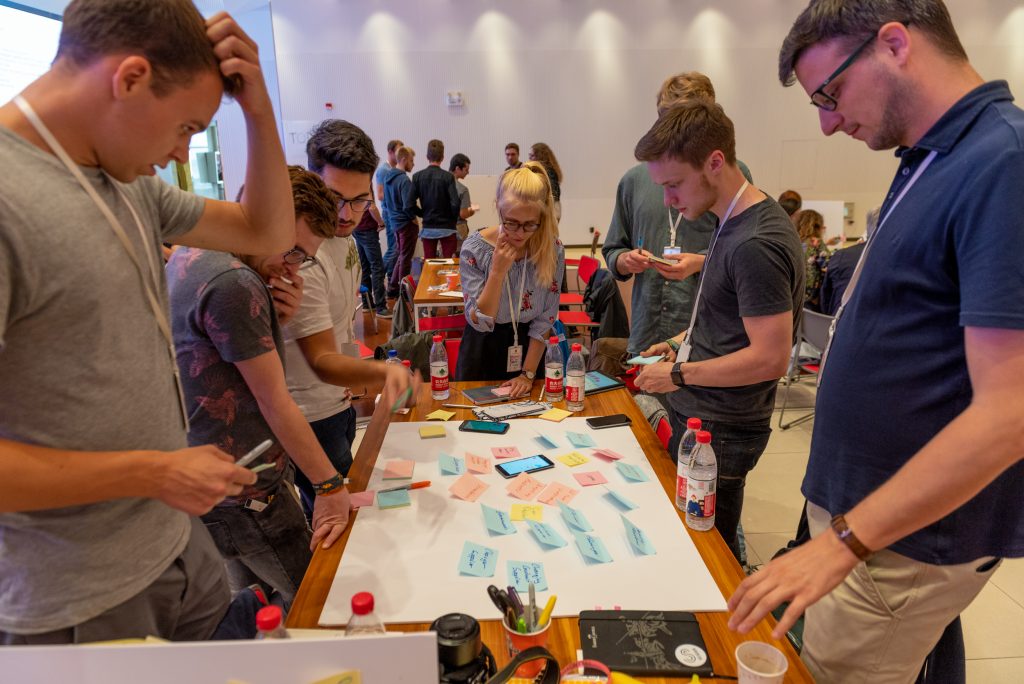
timeline
Important Dates
- Mid September: Kick-Off in Karlsruhe
- Beginning of October: Official International SUGAR Kick-Off
- Mid December: Fall Presentation
- Beginning of March: Winter Presentation
- Mid June - Beginning of July: Two Final Presentations at SUGAR and at your company
Application
Requirements
What We Expect
- Excellence, Enthusiasm and Willingness: Excellent Achievements, Enthusiasm and Willingness to work together in a small team
- Commitment: Willingness to work diligently on a nine-month-project: 110% for your team, for your tasks, for your company. This is why we expect you to be present in Karlsruhe for the duration of the project.
- Personality: Good grades are important. But the same is true for your personality and, if applicable, your experience in Design Thinking.
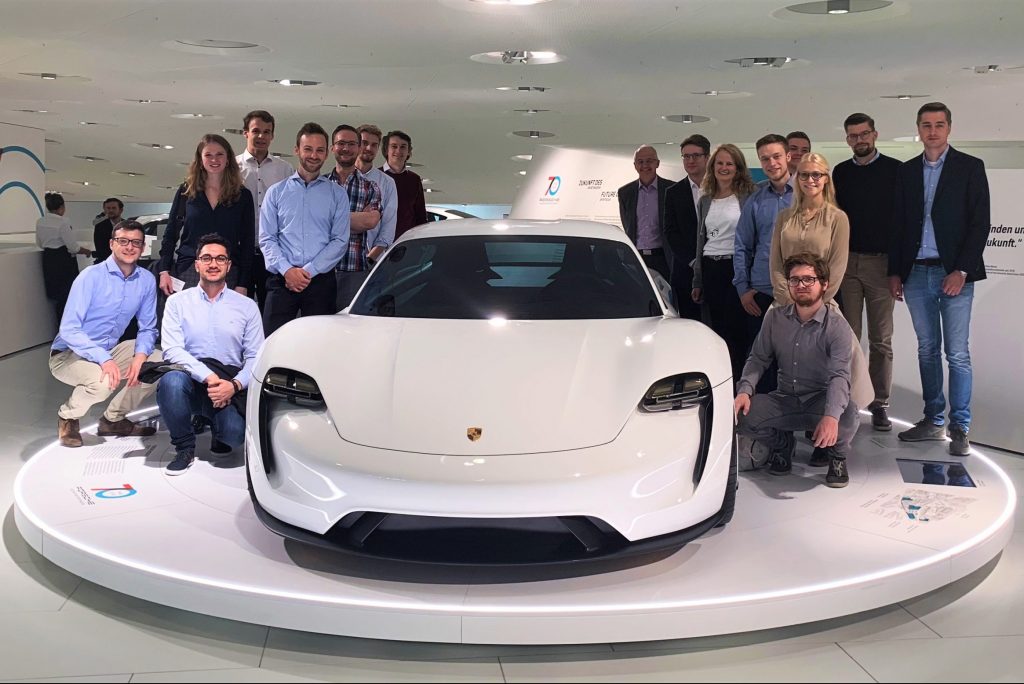
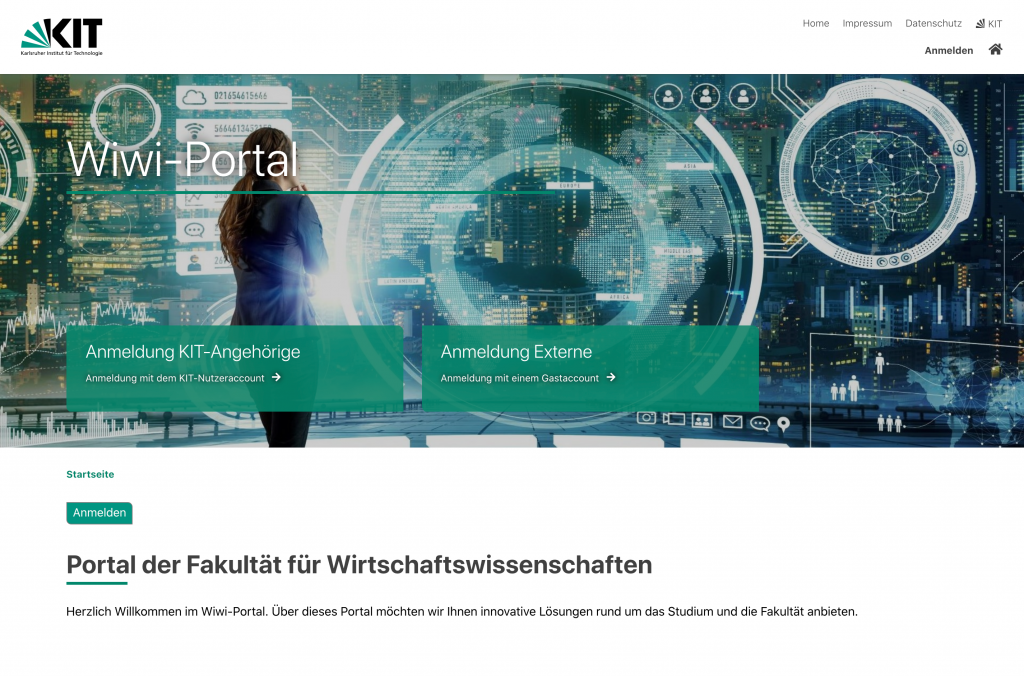
Selection Process
How To Apply
- 1. Apply to the WiWi Portal: You will need a letter of motivation, CV and transcript of grades. The application can be submitted in German or English. Based on the impression of the documents, we invite you to personal interviews.
- 2. Personal Interviews: Interviews with Prof. Dr. Satzger are one on one, while interviews with the KSRI teaching team are done with two other candidates. As a rule, the interviews take place in July (provisional). Concrete dates are still to follow. The result of this round is a provisional list of participants as well as a „waiting list“.
- 3. Final Confirmation: Depending on the number of firm commitments made by partner companies, we will finally give you a final confirmation.
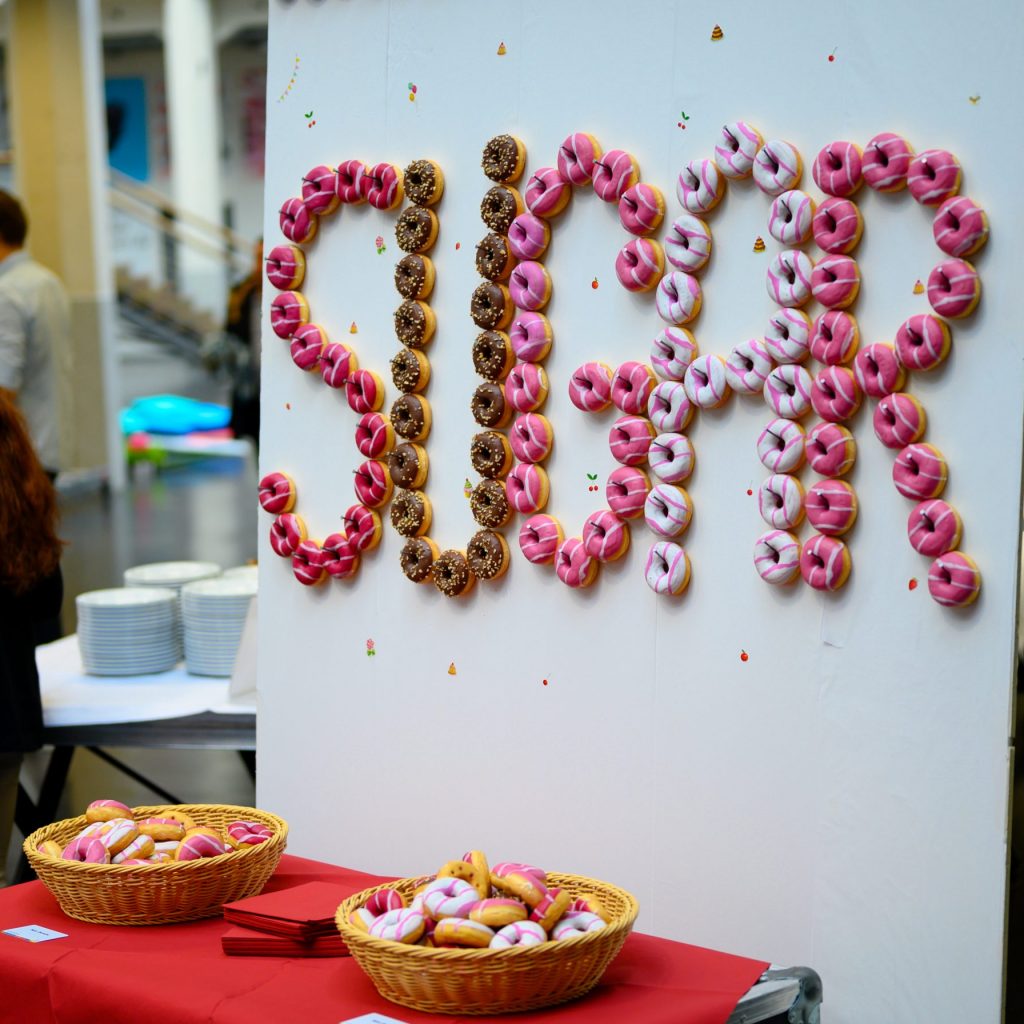
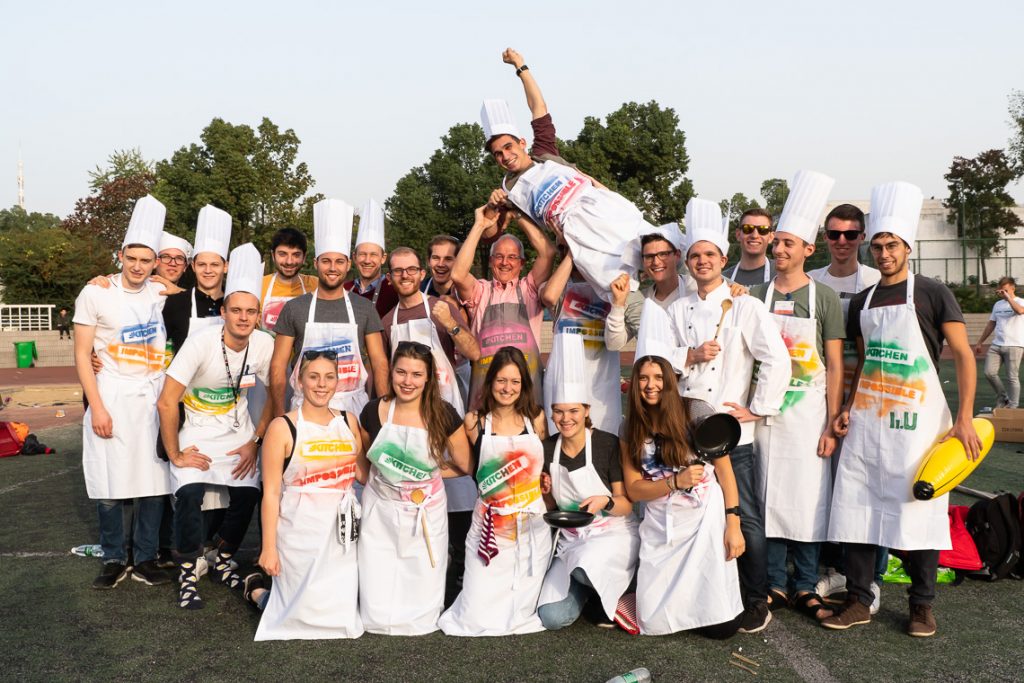
Students
Questions & Answers
Everyone! We welcome applications from master students of all departments of the KIT. However, in terms of crediting the program for your study, we only have formal agreements for students studying Business Engineering (M.Sc.), Information Engineering and Management (M.Sc.) or Computer Science (M.Sc.) at KIT.
Nevertheless, we have had participants from other departments as well. In these cases, we worked our individual arrangements with the respective examination office.
You should plan with 2 days per week per student (including semester holidays) – depending on the project situation it can be more.
There are many criteria for the selection of participants. Of course, your grades play a role, but it is only one criteria among many. Your letter of motivation, your CV and, above all, your experiences and skills that are evident in these two documents are very important. We not want to include only brilliant students in the program, but also to put together teams that cover a wide range of skills. Finally, our impressions from the interviews are important too. The program includes intensive international teamwork. In this respect, teams need to fit together not only professionally but also personally.

